Should You be Thinking About Circular Marketing?
Circular marketing converts marketing spend into brand equity and goodwill. Learn how leading brands are making it work for them.
3-Minute read
Ian C Tomlin
Circular marketing is an approach to marketing whereby marketing expenditure is not burned on so many one-off transactions but is instead converted into other forms of value, such as audience goodwill. It envelopes partner and community-of-interest marketing, focusing marketing attention on the task of bringing value to stakeholders in ways that build brand equity and long-term relationships over time. Should you be considering circular marketing for your 2024 marketing budget? This article examines the pros and cons.
Introduction
The idea of building out new connections through communities of interest is not new in itself, but the Circular Marketing movement is focused as much on the ideology of marketing as it is on the nuts and bots.
Interest in circular marketing comes as the result of failings in traditional transactional methods. Transactional marketing has existed for decades and has focused the majority of marketing budgets on outreach channel campaigns via phone, email, social media, and events, etc. to source new sales leads and prospects.
Transactional marketing is today a pale shadow of what it once was. At best, it delivers far fewer results for far more spend and, at worst …it doesn’t work.
What’s caused the demise of transactional marketing? In truth, aged marketing techniques have experienced death by a thousand cuts, including:
- A paucity of ads and content on communications channels (the result of AI democratizing content authoring).
- Increases in data privacy legislation and buyer concerns.
- A growing backlash against cookies and unsolicited sales techniques.
- For buyers, greater self-determination and control over what communications and relationships they choose to have.
Ask marketing leaders, why they have moved toward circular marketing and you will likely get (something like) one of these responses:
"We could not tolerate the unacceptably low conversion rates resulting from outmoded transactional marketing methods"
Transactional campaigns often target broad audiences with generic messaging, resulting in low conversion rates. The focus on immediate sales can lead to customer fatigue and brand burnout.
"We had to find a way to create first-party data relationships and overcome data privacy hurdles in our outreach"
Reliance on third-party data and aggressive targeting based on personal information raises privacy concerns and can damage brand reputation and trust.
"We want to be a trusted voice and supplier"
Transactional marketing often creates superficial interactions focused on immediate sales, neglecting the opportunity to build deeper relationships with customers.
"We could no longer sustain the high expense and short-term focus of campaigns"
Paid advertising and direct promotional efforts can be expensive and offer limited ROI. The emphasis on short-term conversions overlooks the potential for building long-term brand loyalty.
The net impact of all these challenges and trends is that transactional marketing is becoming yesterday’s news.
Newton Day . We keep your GROWTH on-track
(Click the little red button to get started)
Your Customers Want You to do Circular Marketing
It’s often said that customers don’t want to be sold to. I would go a step further than this and say customers don’t want a sales pitch unless they have permitted you to offer it! Unsolicited phone calls, pop-up ads in your browser, pushy salespeople at exhibitions and events, door-to-door salespeople …these are just a small semblance of the outmoded sales techniques that tarnish your brand reputation and deliver scant results.
Customers want to buy from brands they trust when it suits them. They want to benefit from the knowledge an expert provider can supply …but there is a time and a place for everything. Your first job, as a marketer, is to earn the right to make an offer in the first place.
A Few Facts
-
72% of consumers consider a brand’s community involvement when making a purchase decision (Cone/Porter Novelli).
-
88% of consumers want brands to actively support their communities (Edelman Trust Barometer).
- Communities generate 20% more sales with 50% lower customer acquisition costs (Bain & Company)

Why Go Circular?
Circular marketing offers several key benefits over traditional transactional marketing, particularly when first-party data relationships are prevented in so many ways.
#1 Brand Equity and Trust
By focusing on providing value to a “community of interest” rather than directly promoting yourself, you build trust and positive associations with your brand. This longer-term investment in goodwill can lead to organic growth and stronger customer loyalty.
#2 Deeper Customer Relationships
Engaging with a community in a non-transactional way creates deeper connections with potential and existing customers. This allows you to understand their needs and interests better, leading to more relevant and meaningful interactions.
#3 Reduced Reliance on Unpredictable Marketing Tools and Channels
As brand awareness and trust increase within the community, reliance on traditional email and social media outreach, paid advertising, one-time events, etc. for immediate conversions can decrease. Organic reach and referrals become more effective, leading to more predictable outcomes and often significant cost savings over time.
#4 Sourcing Data-Driven Insights
By actively engaging with the community, you gain valuable insights into their preferences and behaviors through direct feedback and interactions. This data can inform product development, content creation, and future marketing strategies.

As the case stories below show, effective Circular Marketing dictates a laser focus on the target persona of the community of interest and understanding the interests and goals of stakeholders.
Success Stories in Circular Marketing
The marketing landscape is evolving, and trail-blazing companies like AloYoga, Hello Sunshine, V/NEBUD, Soho House, Peloton, and Lego are leading the charge by prioritizing brand equity building within tightly-knit communities. This circular ‘community-of-interest’ approach is shifting the focus of the marketing profession from bite-sized fleeting transactions to fostering long-term trust and loyalty at scale.
AloYoga brings value to a community of yoga enthusiasts

Not your usual fashion retailer, AloYoga’s ambition is to BRING YOGA TO THE WORLD spreading mindful movement, inspiring wellness, and creating community. In addition to its catalog of fashion products for yoga fans, the brand manages a chain of yoga studios, offers yoga retreats, and looks to support its community with anything a yoga fan needs.
Aloyoga has strategically partnered with renowned yoga instructors and celebrities, leveraging their influence to reach new audiences and build brand awareness. They also collaborate with wellness brands and organizations, solidifying their position within the holistic well-being community. Aloyoga’s online platform, AloMoves, has seen explosive growth, reaching over 2 million subscribers by 2023. It offers a vast library of on-demand yoga classes, meditation sessions, and wellness programs, catering to a global audience. All this circular marketing effort has been repaid in a thriving studio network and robust financial results. Aloyoga now operates over 30 studios across the United States, offering diverse yoga styles and attracting a dedicated following. They are known for their high-quality facilities, experienced instructors, and welcoming atmosphere. Revenues exceeding $200 million in annual revenue by 2022 reflecting a steady rise in customer base and brand loyalty.
“At Aloyoga, we’re driven by a deep passion for sharing the transformative power of yoga with everyone. We believe that yoga is not just a physical practice, but a pathway to greater well-being, connection, and purpose. Building a thriving community around this shared passion is at the heart of everything we do. We want to create spaces where people feel welcome, supported, and inspired to explore their own possibilities on and off the mat.” Brittany Jones, Chief Brand Officer, Aloyoga
Hello Sunshine is redefining script publishing with author empowerment and Hollywood access

Reese Witherspoon’s Hello Sunshine is breaking the mold of the film script publishing industry. The production company of Reese Witherspoon runs Reese’s Book Club and offers authors who want to share their work in the book club, the opportunity for promotion, build awareness, gain feedback, and sell more books – but members are required to offer first refusal on film rights!
This unique approach centers around building a thriving community of authors, offering them invaluable opportunities in exchange for first refusal on film rights. Authors gain access to Reese’s influential Book Club selection, reaching millions of readers and boosting book sales. This exposure is unparalleled in the traditionally opaque script publishing world.
Hello Sunshine provides extensive marketing and promotional support, propelling authors into the spotlight and connecting them with industry professionals. Authors benefit from expert advice and development feedback from established screenwriters and producers within the Hello Sunshine network.
The Golden Carrot is the dream of a Hollywood adaptation. The first refusal on film rights grants Hello Sunshine the chance to develop a beloved script into a film or series, benefiting both the author and the company. Of course, this is good news for Reese Witherspoon who gets first refusal on some great (and popular) scripts!!!
Nevertheless, by focusing on author empowerment and value creation, Hello Sunshine fosters deep loyalty and trust within the writer community. Authors become advocates, amplifying the brand’s reach and attracting more talent. Furthermore, access to feedback and industry connections leads to improved scripts, ultimately attracting larger audiences and potential buyers.
Hello Sunshine has secured film rights to numerous scripts, including “Little Fires Everywhere” and “Where the Crawdads Sing,” both adapted into successful series and films. Renowned authors like Celeste Ng and Delia Owens have praised Hello Sunshine’s supportive environment and commitment to their creative vision. The company has received multiple awards and nominations, including a Golden Globe for “Big Little Lies,” further validating their unique approach. Overall, Hello Sunshine’s strategy revolves around a win-win model: authors gain promotion, feedback, and potential Hollywood dreams, while Hello Sunshine builds a loyal community, acquires high-quality scripts, and generates industry buzz.
“We want to be a safe place for authors, a place where they can tell their stories without fear of judgment and with the potential for global reach.” – Sarah Harden, CEO of Hello Sunshine.
Soho House is cultivating exclusivity and cohesion through its community

Soho House cultivates a sense of exclusivity through curated memberships, creating a vibrant community of creatives and entrepreneurs. They host events and workshops catering to shared interests, fostering deeper connections and brand allegiance.
“Soho House isn’t just a place to eat, drink, and sleep; it’s a tribe.” – Nick Jones, Founder of Soho House.
Peloton is transforming fitness into a shared journey

Peloton’s interactive classes and live leaderboard connect riders globally, creating a supportive and motivating community. They host in-person events and encourage social interaction, turning fitness into a shared experience that strengthens brand affinity.
“We’re not just selling bikes; we’re selling a community.” – John Foley, Co-founder of Peloton.
Gymshark is flipping fitness marketing on its head with its innovative circular marketing approach

Gymshark isn’t just another sportswear brand; it’s a community phenomenon that’s shaking up the fitness industry. They’ve ditched the traditional celebrity endorsements and in-your-face advertising, instead cultivating a loyal tribe of fitness enthusiasts who are the heart and soul of their brand. Overall, Gymshark’s success hinges on its ability to create a passionate and engaged community around its brand. By prioritizing authenticity, exclusivity, and social media savvy, the brand has become a testament to the power of community in today’s digital age. Gymshark has amassed over 17 million Instagram followers and 5 million YouTube subscribers resulting in annual revenues exploding from £1 million in 2012 to over £1 billion in 2021. Unsurprisingly, they were named the fastest-growing UK company in 2016 and have received numerous other accolades since. Want to know how they did it? Here’s how:
Gymshark doesn’t just partner with influencers; they nurture long-term relationships with fitness personalities who genuinely embody their brand values.
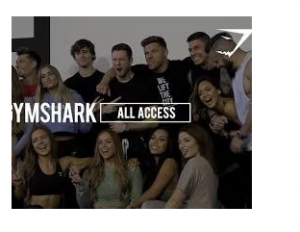
Gymshark actively encourages and features User Generated Content, showcasing real people in their Gymshark gear, sweating it out, and achieving their fitness goals. This authenticity resonates with potential customers and fosters a sense of belonging within the community.

Limited-edition drops and surprise sales create a sense of excitement and urgency, driving customers to the brand. It’s not just about buying clothes; it’s about being part of the exclusive Gymshark club.

These aren’t just paid posts; it’s about creating authentic connections with their target audience.
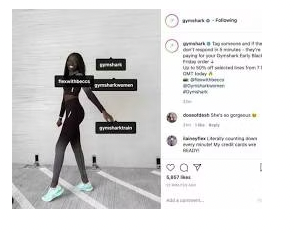 Gymshark is a social media powerhouse, with millions of followers across platforms. They use engaging content, humor, and behind-the-scenes glimpses to keep their audience hooked. They also actively respond to comments and messages, fostering a sense of personal connection with their fans.
Gymshark is a social media powerhouse, with millions of followers across platforms. They use engaging content, humor, and behind-the-scenes glimpses to keep their audience hooked. They also actively respond to comments and messages, fostering a sense of personal connection with their fans.
“We don’t want to be seen as just a clothing brand. We want to be seen as a community, a movement, a lifestyle.” – Ben Francis, Gymshark founder
Lego is inspiring creativity and collaboration through its community of interest

Lego Ideas invites fans to submit and vote on new set designs, actively engaging the community in product development. They host building challenges and conventions, showcasing the power of collective creativity and solidifying brand enthusiasm.
“We want to inspire and develop the builders of tomorrow.” – Kjeld Kirk Kristiansen, CEO
V/NEBUD is helping its community of wine fans find the wine they love
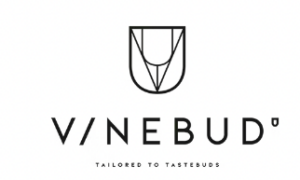
V/NEBUD is a wine shop located outside to the market town of Towcester, in the heart of the English shires. When the shop launched, many locals wondered how a small shop could compete with popular online wine retailers like Laithwaites, and local supermarkets. Adopting a circular marketing ideology, V/NEBUD runs local community meet-up and taster events, markets its brand on local radio talk shows, has developed a loyalty program, and has authored a taste-tester app to help ‘wine enthusiasts’ like its founder, Josh Moinet, ‘…find wine they love.’
“I wanted to give wine fans like me a better way to find fantastic wine for themselves, which is how I came up with the idea for a taste-testing algorithm.” Josh Moinet – CEO
Patagonia - the standard bearer for a community of eco-conscious consumers
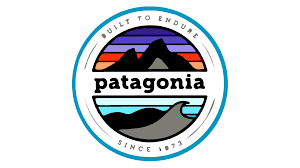
Patagonia’s Worn Wear program encourages garment repair and resale, extending product life and reducing waste. This fosters a culture of environmental consciousness and brand loyalty among eco-conscious consumers.
“We see ourselves as an activist company working to change the world through environmental activism, using business as a tool.” – Yvon Chouinard, Founder of Patagonia.
Lush Cosmetics makes buying cosmetics a reason to bring like-minded fashionistas together
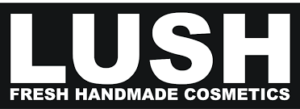
Lush champions sustainability with refillable packaging, natural ingredients, and ethical sourcing. They host workshops and events in their stores, creating a space for community engagement and brand connection.
“We believe in ethical practices, animal welfare, and environmental activism.” – Peta Lush, Co-founder of Lush Cosmetics.
Dove puts its community first, products second
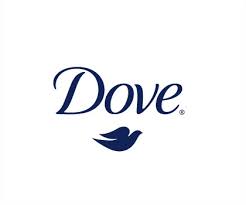
Dove partners with real women and organizations, inspiring their community and building trust through relatable experiences.
“We celebrate real beauty and diversity through our community.” – Esi Eggleston Bracey, Global Vice President of Dove Masterbrand.
Final Thoughts
Feeling inspired? Okay, circular marketing may not be a “silver bullet,” but it’s the closest thing the marketing industry has to a more sustainable and trust-based approach to brand building and customer engagement, especially when first-party data is all important.
As can be seen through the examples we’ve included in this article, the success of circular marketing hinges on actively engaging with your community, understanding their needs, and constantly providing value. It’s about building a mutually beneficial relationship, not just chasing transactions.
The key to successful circular marketing lies in understanding your community’s needs, engaging them actively, and consistently delivering value that transcends mere transactions. By focusing on fostering community and providing genuine value, businesses can turn marketing spend into an investment in long-term brand equity and customer loyalty.

Ian Tomlin
Author
Ian Tomlin is a management consultant, marketer and relentless ideas guy. His passion is to get the best out of talented people and help make great ideas happen. Relentlessly optimistic about the potential of technology for good, Ian’s 30+ year career has focused around the intersect of strategy, technology and marketing.
Ian is chief cheerleader for Newton Day Ltd, the spark behind Tomlin&Co. and head fan of The UWI. He writes books and articles on brand, digital transformation, enterprise applications, data science, workforce management, and organizational design. He can be reached via LinkedIn or Twitter.

